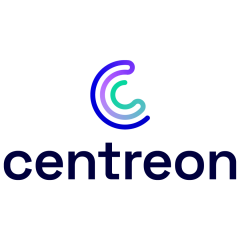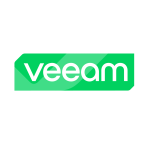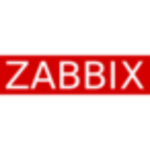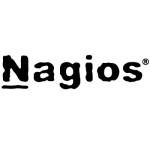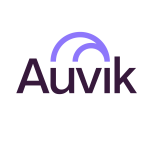What is our primary use case?
Our primary use case is for our customers and us (S&L). S&L is service provider for our customers. We use Centreon for our own monitoring, but mainly, it is used for our customers. We support our customers to build up monitoring with Centreon, monitor their infrastructure, obtain a view of their environment, and know about problems before they really matter. Because if you have some architecture, then you can react. If you don't react, you will have real problems in the future. To prevent this, you can use Centreon, as one of many examples.
How has it helped my organization?
If you have different functionalities, like a mail flow or production hall, that you need to take care of, then you can visualize those into a map, and you will be able to see on the map where your real problem is. E.g., you have a big hall with different access points where need to locate the signal of disconnected access points. Then, you can currently see it on the map. It's not that complex, because you can easily take a look at the map and see it where the location is of the faulty device.
It is decentralized, which is better, because you can reduce the load from a single system. Also, you get a better view because it's more independent. Then, for the management, it's nice because they have one central system. With that, they can manage all the other systems, as well. This means they don't have to configure each system by system. They can configure it from one single interface.
What is most valuable?
One good feature is you can see a big picture of your entire infrastructure. If one component is not reachable, this doesn't mean that you have other hosts which are not reachable, and you can see the cause of it. You can see the reason why your servers or program aren't available to the public. Therefore, you can solve the problem and save a lot of time in detecting the problem, so you don't have to search for it. You can see the problem right in the traffic interface.
Another thing that is very powerful in Centreon is the possibility to use third-party modules. You can integrate different modules into it, so you can use the collective data in different ways for different needs. You can also create some events with it for support tickets, which is great stuff. You can automatically create some support tickets to support your IT department for an efficient way to work.
The data visualization features are great because you can get a view of the past. You can see some concurrent data correlations, because you can see your data usage over the past couple of weeks or months, so you can do capacity planning for the future. E.g., for capacity management, if you have to expand your storage, then you have more possibilities to use third-party modules or you could also buy a commercial one, like Centreon MBI, which is an enterprise feature of Centreon. Using the module, you can create reports automatically. Another benefit could be to use Centreon BAM because there you can design business cases and define KPI to get notified in a special way of escalation (first-, second-, third-level support.)
The great thing about Centreon is that it is also based upon Nagios. However, Centroen also provides the EPP, Enterprise Plugin Pack. The plugins are capable of monitoring nearly all data you want. The only necessary thing to get to your goal is it needs the destination that you want to monitor. This means you will have to have an API or some other way to make a call to the destination, so the destination can respond to it. If this is possible, you can nearly monitor all things with Centreon. This is very nice because you can monitor technical stuff and also normal things, like availability of some services, which are being used by your customers, your colleagues, or yourself, so you may get a view of the functionality behind it.
Centreon is not just a monitoring system, because if you take care of it, you will get great documentation and an overview of your topology without spending additional time to create or achieve that goal.
What needs improvement?
Because the API is available, which is good, Centreon could be more productive if there was better API functionality. Since you can automate some tasks with the API, such as how to add an host or automatically rollout a new host, this is a good area to continuously improve. E.g., the automatic adding of hosts, like LDAP objects or network scans. I think the network scan is a good point, because if you install Centreon as a fresh install, it's pretty easy to make the basic installation. It's very easy because you can download a ready-to-run image from a virtual machine. Or, you can also download a custom operating system on it and can get the system quickly running. However, after you have it running, you need to fill it with objects, which make sense. This is the point where Centreon could improve. They could add different tools to make it easier to add some hosts to your network from your Active Directory, etc.
Another big improvement would be a more powerful API to add host services, etc. At the moment, these things are possible, but not directly. These are things Centreon may need to think outside-the-box about and be creative.
Also, Centreon supports officially 10,000 services per poller. That is not much for larger customers, because this limit is reached very quickly. We use it with three times the limit without any problems, but Centreon says, "Okay, we are only supporting it with 10,000 services." We are aware that increasing the limit has different impacts because they need to support it. However, for most customers, it would be be very good if they could increase the limit of services.
I would also like to see an improvement of the communication with big data systems, because Centreon is a monitoring system. In our point of view, Centreon should be a part of a source for a big data system, not a big data system itself. So, it should be easier to add data from the Centreon system (monitoring results) to a big data system. For example, it should be able to feed another machine learning system. At the moment the interfaces are limited.
For how long have I used the solution?
We have been using Centreon since either 2007 or 2008.
What do I think about the stability of the solution?
The stability of the architecture is very helpful because Centreon provides its own protocol. It is called BBDO, which is a binary protocol from Centreon. It's very stable. Because if you have an outage or disconnect from a remote server to your central system, it doesn't matter. The system will continue to collect all the necessary information. Once the connection is up again or reachable, the collected data from past will be automatically transferred to the central system and be calculated there. So, you don't have a gap or missing information in there. The BBDO also has the benefit that the monitoring system will keep running, even if the central machine isn't running. So, if you have different satellites or remote servers (pollers), this is a nice thing. Because once the central machine becomes available, then it synchronizes itself without any additional administration tasks to do.
Mainly, we using Centreon 2.8.28. However, we are also developing own features for the newest version 19.04. With the newer version, we want to release it for our customers and use it for them in the upcoming weeks.
Monitoring is the main topic for our team. For us, it is full-time maintenance, but this is because we are the customer's contact person. We take care of many customers, so we have to know what we are dealing with and take care of many questions all day long.
What do I think about the scalability of the solution?
Out-of-the-box, Centreon scales without any limits, from a default point of view. You can add different pollers to reduce the loads on another poller. From the outside, you have a web server on the internet, where you can monitor it.
For the future, it would be great if Centeron redesigned the way of holding the performance data, especially for Monitoring Business Intelligence (MBI). This is an enterprise product of Centreon, and the amount of data stored there is not a small thing. Maybe, they could phase in with another amount each year or use Elasticsearch to reduce the data amount and query time, because the MBI module from Centreon is very nice, but the data storage is huge. This is something that they can take care of to make it a bit better.
In general, Centreon scales great without any limits. If you have a limitation on a single poller, you just have to set up a new second, third, or fourth poller. Then, you can distribute your monitoring.
In our organization, we have around 100 people using it (out of three companies). We have 50 different customers of a wide range, like automotive and medical, who are all independent, self-standing companies.
How are customer service and technical support?
It is very easy for one single customer to get support with Centreon.
Normally, we don't need technical support from Centreon directly. As a partner, we deal with any sort of problems ourselves daily. It doesn't matter if it is a Level 1 or 2 problem. Level 3 problems can be also solved by our own team, in most cases. Though, in one out of ten cases, we need to contact Centreon directly, and when we do, they are very helpful.
In a worst case scenario, we need to schedule an appointment with a Webex session (remote session), but that is something that has worked really well in the past. We make an appointment with the customer together, then we can solve the problem very quickly.
Centreon does very well supporting their partners and customers. It doesn't matter if it's technical or another point of support. Their support is very good.
Which solution did I use previously and why did I switch?
Previously, we used Nagios, which is the general base of Centreon. Nagios is a monitoring solution that is open source. It was one of the first monitoring tools available to the public. In the past, Centreon was just a critical interface for creating the configuration of Nagios. This changed in the last couple of years, so Centreon is now a completely self-standing product.
How was the initial setup?
The initial setup is pretty straightforward, because it's very easy to get it running. However, you have to spend some time with it to get it to life, because if you just set it up, it is empty. Therefore, you have to take care that there are some holes in it, and you need to monitor some things. This is back to my point about a better API for the future as an improvement.
To get a basic view of your environment, it normally takes two to three days. However, if you want to go into detail, it depends how large your environment is: It could be hours or weeks.
What about the implementation team?
We are Centreon partners, so we use our implementation strategy almost daily for our customers and ourselves. If we set it up, we ask the customer, "What are their needs?" We have a best practice, so we install the basic systems made in a network scan, which are pretty easy. If you have a scan, you can use the API to import a host. Then, you can use the monitoring really quickly.
What was our ROI?
If you have an outage in your environment, every minute counts. Every single minute that you can save with Centreon is a good reason to use it.
We and our customers have saved so much time that we are acting instead of reacting to a situation in a positive way. You can get the investment back within a few weeks.
If you can imagine having an outage of your infrastructure and 100 people cannot work for any reason against a small outage, which was indicated by your monitoring system and could be avoided, then this is an estimated ROI calculation.
What's my experience with pricing, setup cost, and licensing?
The pricing starts at around 5000 euro. However, this depends on:
- Your environment
- The size of your host
- How many hosts that you have.
- How many remote pollers that you have.
- If you want to use the Monitoring Business Intelligence or Centreon MAP functionalities.
You purchase a package. You have a support contract (there is also a platinum support contract) and it is per module. That means you have to pay, e.g., for the MBI module or the BAM module. Or, if you want to save a lot of money, you can pay for IMP, which is the complete package.
The pricing setup costs and licensing weren't very good in the past. The customers generally said the pricing of Centreon was fair and cheap if you compared it with other solutions. However, in the last few years, Centreon changed the license model multiple times, telling us the current model will not be stable. Many of our customers were confused about the many changes with the increasing license costs. Our customers wanted to get the support and contact person of their countries. The business investments of our customers are well planned for the next few years, not just the next two years, but this was the way Centreon thought in the past. Our customers want a stable, attractive base for investing that they can call upon. We were able to figure out a solution with Centreon for every single customer to solve this problem in the past.
For the future, it would be nice if they have a more stable pricing model. Centreon has told us that they know about the issue, and they will try to adjust it to make it better in the future.
Which other solutions did I evaluate?
We have taken a look at other solutions, like Zabbix, Nagios, Check MK, and PRTG. For us, Centreon is the best solution, because we have all the benefits from the other solutions. Not all, but most of them. It's a great product to monitor our environment, so we can prevent any outage or misconfiguration on some hosts.
A main feature that sets apart Centreon versus its competitors is the possibility to expand the monitoring. You can set up different satellites to expand your monitoring or get an inside view of a special environment, such as a DMZ zone. Or, if you want to monitor a branch office from another country, so you can monitor it with an inside view of it, not just an outside view.
We use the remote server functionality on some customer sites, because you can see an independent view and are not dependent on a single connection. If you have branch offices or bigger office outside your headquarters, you can use remote servers because if the connection is broken or disrupted, then the remote server will obtain a view of your environment and server availability. This is a good point against using other solutions. Because with other solutions, you don't have this feature. Then, you will be blind if you have this type of a situation.
What other advice do I have?
Centreon is definitely not a perfect or bug-free solution on the market. On the other hand, which solution is that. They have a great support that you can count on, along with continuous improvement, which is very important for any customer when getting help in a support case.
The most part, Centreon is open source, free, and available to everyone. So, if you phone back you can submit an issue to the GitHub repository or source it directly for help to other users. If you want to set it up, you can do it easily. If you have some problems, you can also take a look at the publicly available documentation from Centreon. No matter which solution you use, you should be aware that every solution needs time to invest for a good, pure result. For Centreon, and also in other monitoring systems, you have to spend time with it because monitoring is a permanent process, which should be improved daily, but you should focus on the important things.
We use Centreon a lot, but we could use it a bit more in the future, because Centreon is nice in a way that it is not just monitoring. You can also make the documentation of your network topology without any additional work. If you take care of your monitoring, you have automatically created a topology of your network, so now you have documentation of it. This is also a time saver.
I am splitting my rating into two parts. Centreon is an open source, available product. I would rate it with a nine (out of ten). For the license costs, I would give it a seven (out of ten) because that is something they need to improve, so the customer could better plan their investment in the future. This is information that we have received from our customers as feedback. They are really satisfied with the solution, but not 100 percent satisfied with the licensing model, even though this has been improved a little in the past. So, my overall rating is an eight (out of ten).
Disclosure: PeerSpot contacted the reviewer to collect the review and to validate authenticity. The reviewer was referred by the vendor, but the review is not subject to editing or approval by the vendor. The reviewer's company has a business relationship with this vendor other than being a customer: Partner.

